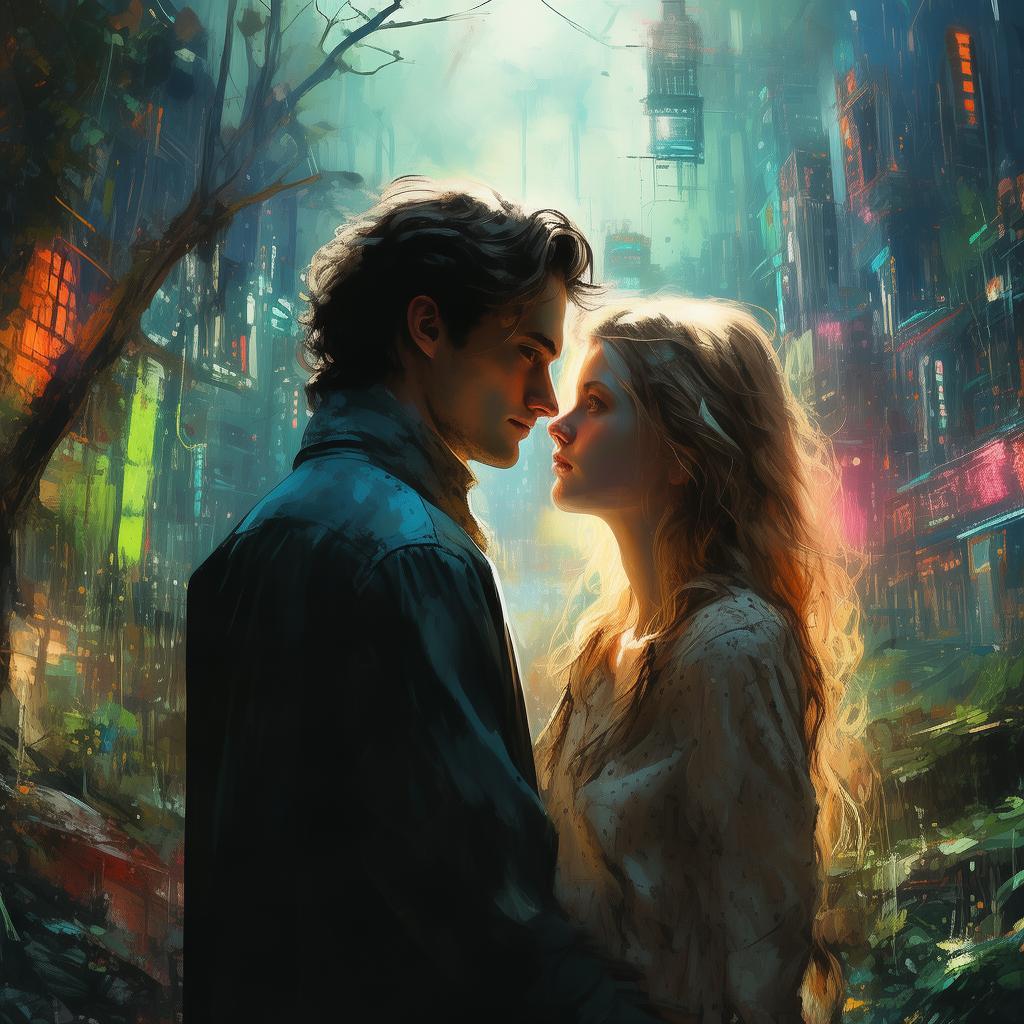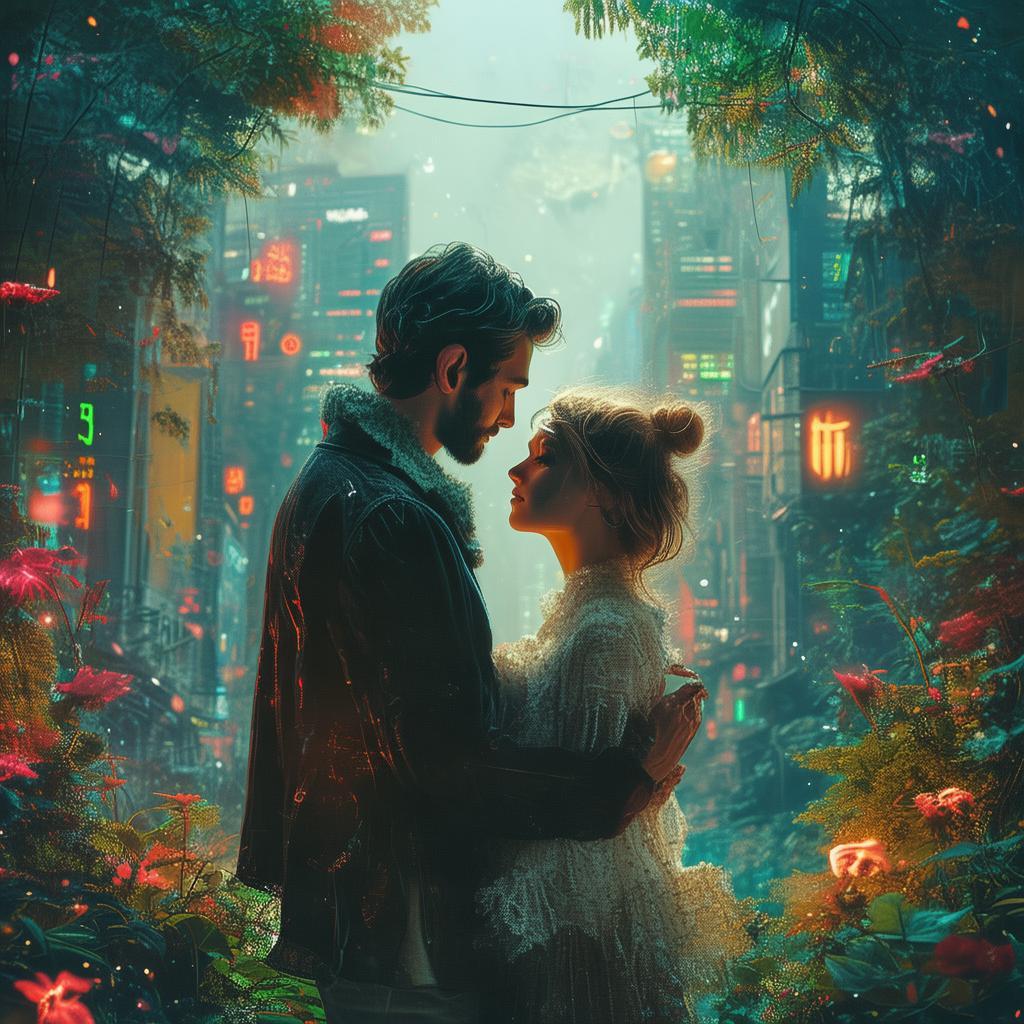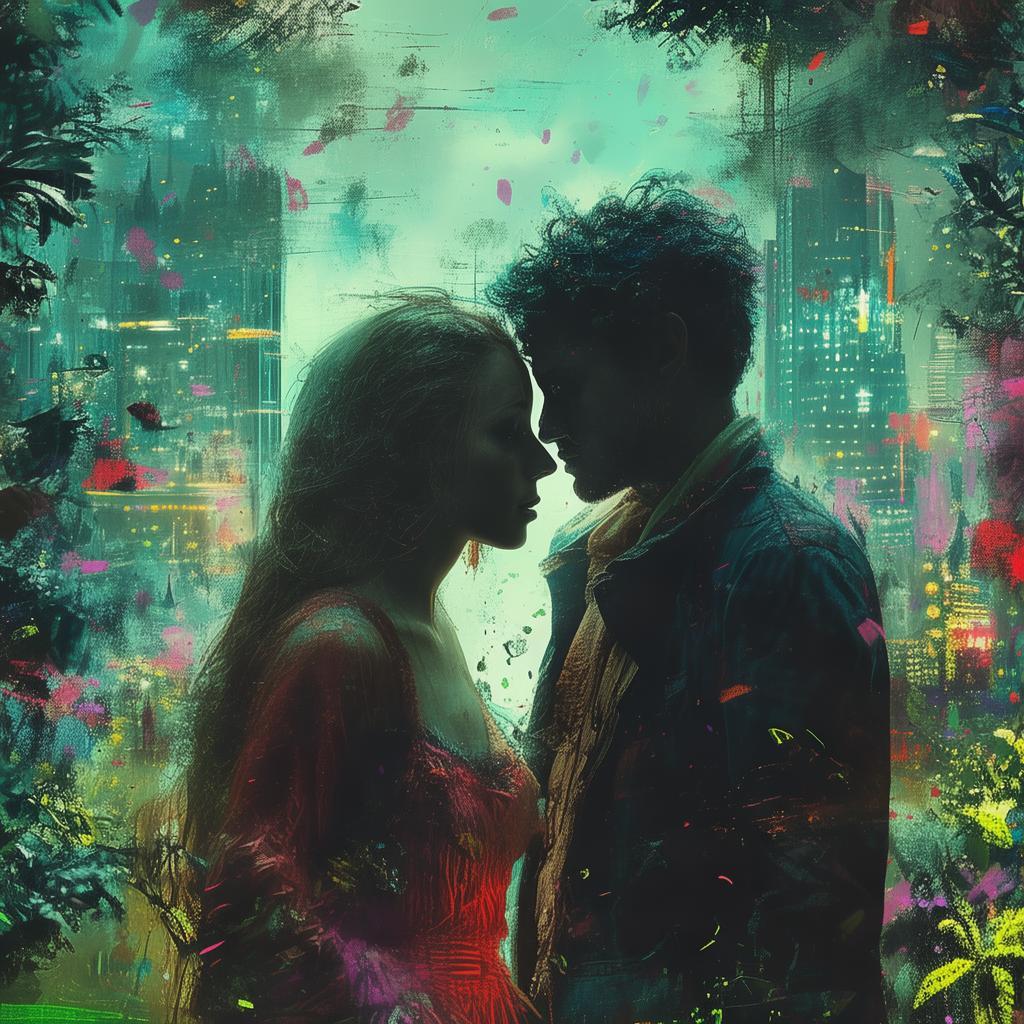The Weaver's Secret Love: A Tale of Forbidden Art and Forbidden Love
In the tranquil, winding canals of Jiangnan, amidst the whispers of ancient traditions and the hum of looms, there lived a young weaver named Liang. His hands, deft and skilled, wove the most exquisite silks, patterns so intricate that they seemed to tell a story of their own. Yet, there was something more than the loom that consumed Liang's heart. It was the forbidden art of painting, a talent he had nurtured in secret, for fear of the societal scorn that would come upon him should his passion for the brush be revealed.
Liang's rival, Mei, was a painter whose brush strokes were as bold and free as the wind that danced through the bamboo groves. She was known for her defiance of the conservative norms that dictated a woman's place in Jiangnan society. Mei's paintings were bold and expressive, challenging the traditional expectations of her gender and the status quo of her time.
The two artists were bound by their forbidden passions, yet they were divided by the rigid boundaries of their society. Their love story was a tapestry woven in whispers and shadows, a dangerous dance that played out under the watchful eyes of their families and the disapproving glances of the townsfolk.

One evening, as the moonlight cast a silver glow over the water, Liang found himself at Mei's doorstep. He had been invited to view her latest work, a painting that she had promised to keep secret until it was ready. As he stepped inside, he was greeted by the scent of ink and the faint hum of Mei's breathless excitement.
"Finally, you've come," Mei said, her voice filled with a mix of anticipation and anxiety. She led him to a dimly lit room where a single lantern flickered, casting an ethereal glow over the canvas. The painting was of a weaver and a painter, their figures entwined in a passionate embrace, their eyes closed in the rapture of their forbidden love.
Liang's heart raced as he took in the scene before him. It was a perfect reflection of his own feelings for Mei, and he knew that he could not keep his secret any longer. "Mei," he whispered, his voice trembling, "I must tell you the truth. I am the weaver in your painting. I have loved you from the moment I first saw you, and I cannot hide it any longer."
Mei's eyes widened with shock and then filled with a tender understanding. "I knew it," she whispered back, her voice filled with emotion. "I could feel it in the way you looked at me, in the way you spoke about art. I have loved you too, Liang. But we must be careful. Our love is forbidden, and it could destroy us both."
The two artists decided that they would continue to meet in secret, their love a silent vow to each other, hidden behind the walls of their workshops and the shadows of the night. They shared their dreams and fears, their laughter and tears, all while the world moved on unaware of the passion that flickered between them.
But as time went on, the secret of their love could not remain hidden forever. The townsfolk began to notice the unusual interactions between the weaver and the painter, and whispers of their forbidden affair spread like wildfire. The pressure to conform to societal expectations grew, and the two artists found themselves in a dangerous game of hide and seek, trying to protect their love while avoiding the scorn of their community.
One fateful evening, as they met in the secret room, they were caught by Mei's brother, a man who had long harbored resentment towards Liang for his success. In a fit of rage, he threatened to expose their affair to their families, knowing the consequences that would follow. Desperate to save their love, Liang and Mei devised a plan to escape to a distant land where their passion for art could be freely expressed.
The night of their escape was a blur of excitement and fear. They packed their few belongings and set off into the night, the canal boats that carried them away from Jiangnan filled with the echoes of their love and the silence of the world they were leaving behind.
As they traveled, they found solace in their shared passion for art, creating masterpieces that were a testament to their love and the freedom they had found in each other. But the weight of their past and the possibility of being caught at any moment hung heavily over them.
One day, as they reached a small village nestled in the mountains, they were met with a new challenge. The villagers, suspicious of their mysterious nature, began to question their intentions. Liang and Mei knew that they must prove their worth to the community, or their newfound freedom would be short-lived.
Drawing upon their talents, they began to teach the villagers the art of weaving and painting, sharing their knowledge and passion. The community slowly opened up to them, and their love became a symbol of unity and creativity within the village.
Years passed, and the once forbidden love of Liang and Mei blossomed into a profound bond that transcended the boundaries of their past. They became the heart and soul of the village, their art celebrated and cherished by all who knew them.
In the end, the love of Liang and Mei was not just a tale of forbidden passion, but a testament to the power of art to overcome societal norms and bring people together. Their love story, a tapestry of courage, creativity, and the enduring human spirit, became a legend in Jiangnan, whispered through generations as a reminder that some loves are worth fighting for, even in the face of the most stringent of taboos.
✨ Original Statement ✨
All articles published on this website (including but not limited to text, images, videos, and other content) are original or authorized for reposting and are protected by relevant laws. Without the explicit written permission of this website, no individual or organization may copy, modify, repost, or use the content for commercial purposes.
If you need to quote or cooperate, please contact this site for authorization. We reserve the right to pursue legal responsibility for any unauthorized use.
Hereby declared.









